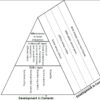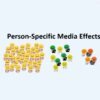News

Watch CID spotlight with Caroline Junge
Caroline Junge (Assistant professor at Utrecht University) talked about Building blocks of social competence. Social competence is of fundamental importance in society. It is linked to prowess in other domains, such as health, academic success, and happiness. To optimize interventions aimed at improving a child’s social competence, we need a theoretical framework that captures the…
Read more
Testing sampling bias in estimates of adolescent social competence and behavioural control
People from a lower socioeconomic background are less likely to participate in research and thus tend to be underrepresented in study samples. A potential risk of this underrepresentation is that research results do not reflect the psychosocial development of the entire population, but instead only reflect people with a higher socioeconomic status (SES). Ties Fakkel…
Read more
Sharks, Ritalin, and a Female Lust Pill: Jeroen Mulder talks statistics in the Makkelijk Praten Podcast
An important determinant for the success of a research project, is a match between the research question, and the methodology and statistical analyses. Few researchers would dispute this, but finding this match can be challenging in practice, especially when the research question is (implicitly) causal. In the podcast Makkelijk Praten, Jeroen Mulder talks about how…
Read more
Description, prediction and causation: Methodological challenges of studying child and adolescent development
The goal of the Consortium on Individual Development (CID) is to study the development of social competence and behavioural control, as these are two skills that are essential to function in society and to reduce the risk of behavioural and emotional problems. CID takes an interdisciplinary approach towards this goal, with research ranging from eye-tracking…
Read more
Newly appointed assistant professor Mariëlle Zondervan-Zwijnenburg
“One of my favourite things is working with an interdisciplinary team of CID reseachers on challenging projects that play towards my strengths. I enjoy bringing together: longitudinal development, structural equation modelling, Bayesian evidence synthesis, multi-cohort data.” During a student assistant position at the department of Methodology and Statistics I realized the field of statistics was…
Read more
Towards an integrated account of the development of self-regulation from a neurocognitive perspective
Self-regulation plays an essential role in wellbeing throughout the lifespan. It is therefore desirable to develop evidence-based theories and models that can help guide research towards, ultimately, effective interventions where needed. In this position paper Matthijs Vink and colleagues present an approach to study self-regulation development that aims to substantively integrate the broad range of…
Read more
Watch CID spotlight with Ine Beyens
During the very first CID spotlight Ine Beyens (Assistant professor at the University of Amsterdam) talked about A person-specific media effects paradigm. The question whether social media use benefits or undermines adolescents’ well‑being is a pressing societal concern. Previous empirical studies have mostly established across‑the‑board effects among (sub)populations of adolescents. As a result, it is…
Read more
The building blocks of social competence
by Caroline Junge (Senior researcher YOUth cohort, Utrecht University) The Consortium on Individual Development (CID) aims to contribute to a model that captures the development of social competence in a changing society. Such a model provides crucial information to optimize interventions aimed at improving a child’s social competence. Social competence refers to the ability to…
Read more
The building blocks of social competence: an animal model approach
By Rixt van der Veen & Katerina Kalamari Picture this: The main difference between your test subjects is an experience of neglect in early childhood, or harsh conditions or maybe a demanding adolescence. Their remaining life context is very similar -they might express a clear difference in certain genes, but this would be known to…
Read more
Intergenerational transmission of parenting and psychopathology
Written by Sanne Geeraerts & Susan Branje (Utrecht University) How, why, and under which circumstances are behaviours, traits and other characteristics transmitted from one generation to the next? And how should we study these transmission processes? In this review, we look at mechanisms of intergenerational transmission and describe what is known about the situations under…
Read more